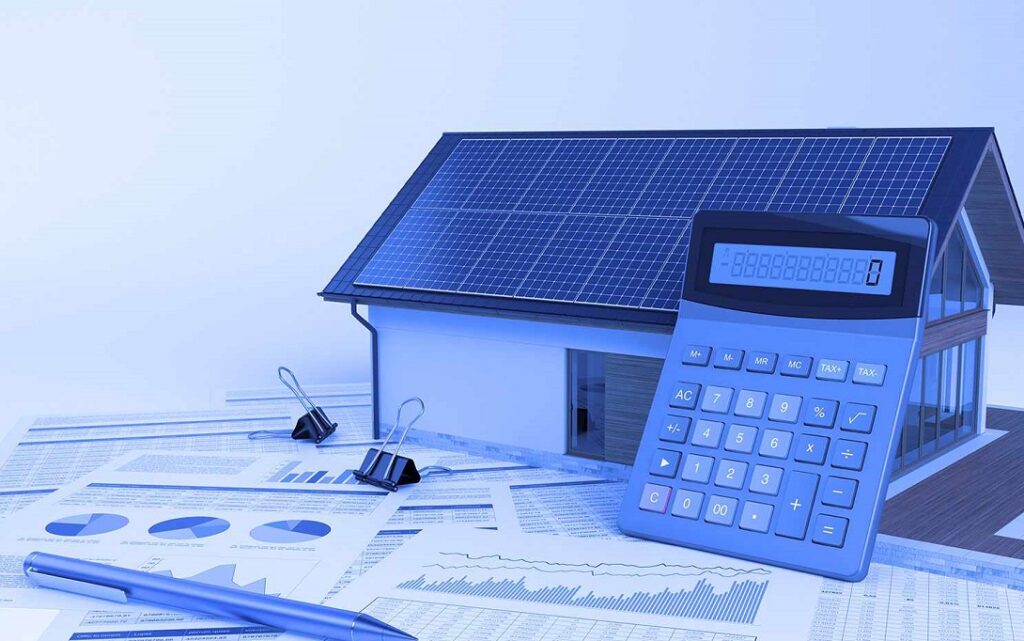
Solar power has risen as a prominent form of renewable energy, presenting many ecological and financial advantages. Nonetheless, the effective execution of solar energy initiatives heavily depends on the acquisition of suitable funding solutions. Developers and investors engaged in solar energy projects need dependable and customized financial alternatives. To surmount initial expenses and guarantee the fiscal sustainability of these endeavors. This blog will delve into various financing options accessible for solar energy projects.
Investing in solar panels for your home is environmentally conscious and can be a smart financial move in the long run. Solar energy reduces your carbon footprint and can lead to significant savings on your energy bills. However, for many households, the initial cost of a solar panel system can be prohibitive. Various financing options and incentives can make the transition to solar power more affordable and rewarding. This blog will explore different ways to finance your solar panel system and take advantage of incentives to make your investment even more appealing.
Solar energy initiatives entail substantial initial expenditures, encompassing the procurement and setup of solar panels, inverters, mounting systems, and associated equipment. Acquiring suitable financial solutions is paramount in surmounting these upfront costs and ensuring the enduring economic viability of solar energy projects. A range of financing options, including loans, power purchase agreements (PPAs), government incentives, renewable energy funds. And also community-based financing, exist to bolster the development of solar energy infrastructure.
Banks and financial institutions extend solar project loans tailored explicitly to cater to the financial requirements of solar energy developers and investors. These loans furnish the essential capital for equipment outlays, installation, and other project-related expenses. Usually, solar project loans come with attractive interest rates and adaptable repayment conditions, which assist developers in efficiently managing their cash flow throughout the project financing process.
Government-driven incentives, such as tax credits and grants, substantially influence solar energy expansion. Tax incentives, including investment tax credits (ITCs) and accelerated depreciation, trim the total project costs and enhance the financial viability of solar energy endeavors. Grants disbursed by governmental entities and renewable energy programs dispense direct financial support, further bolstering the evolution and deployment of solar energy infrastructure.
Renewable energy funds and investment platforms specialize in financing clean energy ventures, encompassing solar energy projects. These funds consolidate funds from investors keen on backing renewable energy progress. Solar energy developers can tap into these funds and platforms to secure the requisite financial backing for their initiatives. The expertise and track record of these funds and media in the renewable energy sector guarantee a comprehensive appraisal of project feasibility and risk.
Crowdfunding and community-driven financing have gained traction as alternative reservoirs of funding for solar energy undertakings. Individuals and communities can contribute modest sums of money toward solar projects via online platforms. This decentralized approach allows for communal involvement and engagement, all while granting developers access to essential capital. Crowdfunding and community-based financing models foster a sense of ownership and facilitate the democratization of solar energy.
The most straightforward way to finance your solar panel system is by paying for it in cash. While this option requires a significant upfront investment, it offers several advantages. You’ll own the system outright, benefiting from all the energy savings and incentives without any ongoing monthly payments. Over time, this can lead to substantial financial benefits as your energy bills decrease, and you may even generate excess electricity to sell back to the grid.
Solar loans are a popular choice if you need more cash on hand to purchase a solar panel system. These loans are specifically designed for financing solar installations, and they come in various forms:
Homeowners with home equity can explore obtaining a home equity loan or a home equity line of credit (HELOC) to fund their solar panel system. These loans often provide favorable interest rates and come with tax benefits.
For homeowners who wish to go solar without little to no initial fees, solar contracts and PPAs are attractive choices. In a solar rental, you pay the solar firm a set monthly sum in exchange for using the solar panels; they keep ownership and maintenance duties. Under a PPA, you consent to purchase solar-generated power at a set price that is frequently less expensive than the rates charged by your utility. Both alternatives can reduce your electricity costs right away. Still, renting means that someone other than you will be the one to own the panels that generate electricity, and the financial gains might be less significant than those from buying.
Many governments and municipal utilities provide incentives and rebates to households who install solar power systems to promote the use of solar energy. These incentives could significantly reduce the total cost of installing solar panels. Typical inducements include:
Investing in a solar panel system is an environmentally responsible choice and a financially savvy one, thanks to various financing options and incentives. Whether you purchase your solar panels outright, secure a solar loan, or opt for a solar lease or PPA, there is a financing solution to fit your needs and budget. Furthermore, government rebates and incentives can further entice consumers, making solar power a desirable choice for homes seeking to lower their energy costs and carbon impact. To get the most out of your solar investment, do your homework on your region’s most recent incentives and financing possibilities before choosing.
